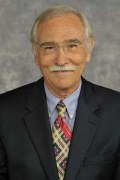Bio
Influenced by the French Annales School as well as the “Berkeley School” of historical demography, Professor Cook’s research and teaching focus on the early modern Iberian Atlantic world. His first major publications center on the catastrophic decline of the Amerindian population of the Andes in the century following the encounter. On the American side of the Atlantic he also published a broad survey of the relation between disease and conquest. With collaborator and co-author Alexandra Parma Cook, he wrote an ethno-historical study of the peoples of the Colca Valley of southern Peru. They also wrote the widely used micro-historical account of one of the Spanish settlers of the valley. Facing charges of bigamy, the life tells much of the concepts of honor, marriage and family, the acquisition of wealth, as well as the Spanish colonial system. The Cooks also translated and edited Pedro de Cieza de León’s classic account of The Discovery and Conquest of Peru (1551). Following interests in the past of their “second home” they recently published another micro-history centering on the work of Sevillian authorities as they faced multiple disasters in the late sixteenth-century. They are currently engaged in two projects. The intent is to reconstruct the social and economic history of all sectors of society in Triana, the maritime district of Seville. The other project centers on the life of Luis Gerónimo de Oré, a Peruvian creole born a decade and a half after conquest. He became a Franciscan and during a long life traveled to Europe and to the far ends of the Americas, from his homeland in the Andes to Florida and to southern Chile. Little-known, he managed to compose important texts for conversion of the Quechua and Aymara, and died in his seventies as Bishop of Concepción.
